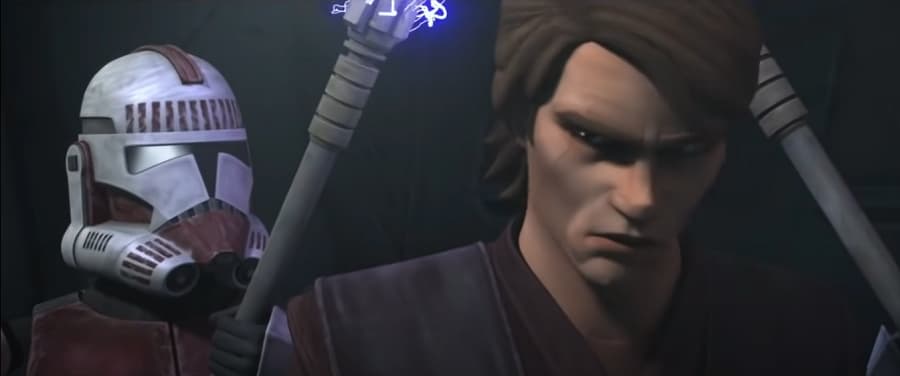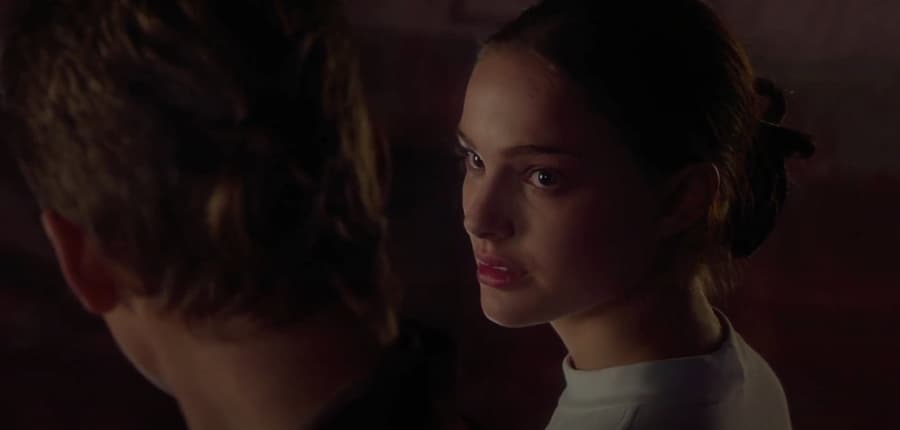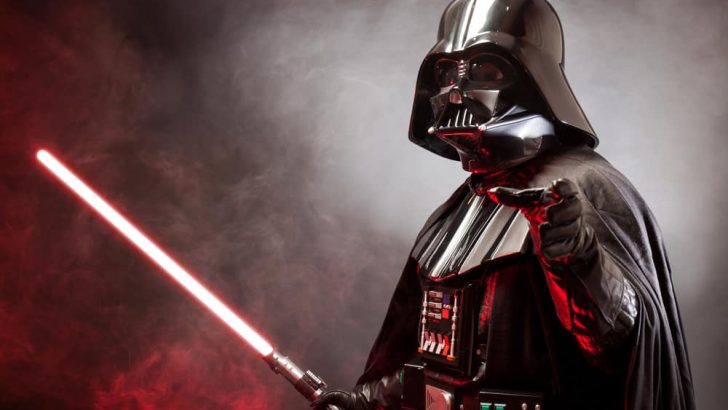Even lightweight Star Wars followers know the iconic scene in Return of the Jedi, where
Darth Vader picks up the emperor, misdirecting the lethal force field, which ends up zapping them both, fatally. So, does this redeeming act of heroism make Vader a hero in the end?
Was
You could argue that his final sacrificial act proved that he still had a good heart, but you can’t forgive his irredeemable past actions. And then there’s the question of whether it was actually
Certainly,
- He killed children.
- He killed his Jedi Master Obi-Wan Kenobi.
- He cut off his son’s hand.
- He killed the persons who had raised his son after he abandoned him.
- He tortured his daughter.
- He assisted in the killing Jedi Master Mace Windu.
Does the End Justify The Meanness?
Instead of rejoicing, many Star Wars fans cried when
Luke Skywalker, the squeaky clean protagonist throughout the Star Wars series, crouches before his prostrate father, who gasps, “You were right about me. Tell your sister you were right.” What was Luke right about? – That there was good in him.
In the scene where Luke refuses to fight Darth Vader and allows him to escort him to the emperor’s throne room, he turns to his father and tries to convert him to the good side of The Force. “Father, I feel the good in you, the conflict.” To which Vader responds, “There is no conflict.”
But there was conflict. There was good. Luke was right. Does that make a
A Weakening of Resolve
Within that five-minute span ranging from the “arrest” of
Darth Vader’s delivery of
He had just had a deflating conversation with his son, in which he tried to convert Luke to the dark side of The Force, while Luke simultaneously attempted to convert him to the good side.
“Search your feelings, Father. You can’t do this. I feel the conflict within you. Let go of your hate,”
–Luke SkyWalker
Vader, had he been the true reprobate he seemed to be, would surely have scoffed at the remark or erupted in evil laughter. But instead, he offers, “It is too late for me, son.”
Was It Too Late for Vader?
You can read a lot in
Why would
This could reveal a sense of self-loathing within
Whatever the good side of The Force represented, Vader felt his time had passed. He didn’t deserve it. It’s important to note what he DID NOT SAY at that moment. He did not bluntly decline Luke’s offer to join the light side of The Force. No, he just said, “It’s too late for me now.”
Anakin Skywalker, Where Are You?
Any analysis of whether
The Force Made Me Do It
Throughout the Star Wars series, The Force has played a major role, mysteriously, invisibly, inaudibly moving inanimate objects about like toys, bestowing incredible strength and power, providing clairvoyance and confusing the weak-minded. The Force is borne of life, yet has the power to alter it.
Some people (for the want of a better term to describe the menagerie of creatures inhabiting the Star Wars galaxy) were more sensitive to The Force than others. The Skywalker clan was clearly sensitive to the presence of The Force – much, much more than most. Given the drama that followed them everywhere they went, you could make a case that Skywalkers were the most Force-sensitive family in the galaxy.
There’s no question that Dad (Anakin) was force-sensitive, and that he passed that trait on to his children, twins Luke and Leia. But what of Mom? Sadly, no. Padmé Amidala showed no outward signs of special awareness or abilities except, perhaps, while she was pregnant with the twins.
People who appear to be Force-sensitive were often thrust into positions of power and prestige, such as the Order of the Jedi Knights. People who weren’t so inclined adapted to the humdrum existence of everyday life, not really understanding or even believing in The Force at all. Among those was the swashbuckling Han Solo, who was an eyewitness to some pretty amazing displays of The Force’s power but still held to his agnostic beliefs.
So When Did it Start to Go Wrong for Anakin Skywalker?
Born on the remote planet of Tatooine to Shmi Skywalker – a slave girl – young Anakin grew up without a father. Who the father was is not revealed in the Star Wars saga. It has been suggested that there never was a human father, that Anakin’s mother was supernaturally impregnated (hence the abundant presence of The Force).
Young Anakin’s ability and skillset was unmatched by anyone his age or even older. His intellect and cunning were likewise emphatically superior. Under the training of his mentor, Obi-Wan Kenobi, Anakin became the strongest Jedi in the history of the galaxy. Yet he remained humble and compassionate until he discovered that the Jedi knights had flaws, just like everyone else.

Anakin’s friend and Padawan Ahsoka Tano was falsely accused of a terrorist attack on the Jedi Temple in which a man was murdered. Although she was later exonerated, she felt she had no choice but to leave the order. Anakin became disillusioned by the way Ahsoka had been treated by the Jedi Knights, and thus, by harboring this bitterness, he took his first steps toward the dark side.
I Trust You, You Trust Me
Watching Anakin from afar, and patiently waiting for him to display a sign of weakness that could be exploited, was newly elected chancellor Sheev Palpatine. Palpatine, who would later become Emperor Palpatine with an incredible mastery of The Force, had sinister plans for the rising star in the Jedi world.
The two became friends, and the unholy alliance between Palpatine and Skywalker would rock the galaxy, and not in good ways.
What’s Love Got to do With it?
It was another female, Padmé Amidala, who garnered the only feelings of love that Anakin ever felt except those for his mother, Shmi. Anakin and Padmé had known each other as children, but when they met again with Padmé serving as Galactic Senator and Anakin as her bodyguard, their desires for one another grew increasingly more difficult to subdue.

They kept their relationship a secret, as the Jedi code forbade romantic attachments. They wed in secret at a remote lakeside ceremony on Padmé’s home planet of Naboo. For the next three years, Anakin and Padmé saw each other when they could, but the frequent separations and the secrecy they felt they had to maintain took its toll.
They managed to conceive twins, but Anakin had already drifted into the nether realms of the dark side, and it would cloud his judgement. After having a nightmare in which Padmé dies, Anakin’s temperament spirals out of control, and he becomes less and less inclined to follow the mentorship of Obi-Wan and of the Jedi Council in general.
Looking for Answers in All the Wrong Places
Anakin’s time of angst gave Palpatine the opportunity to make his most compelling appeal, and the opportunity to reveal that he was actually Sith Lord Darth Sidious. He told Anakin that he alone had the power to save Padmé from the fate Anakin had dreamed.
At that point, Anakin was not so far gone to the dark side that he believed Palpatine. In fact, Anakin turned him in for this bit of sorcery, but just when Palpatine was about to meet his doom at the hands of Jedi Mace Windu, Anakin rushes to Palpatine’s aid, allowing Palpatine to kill Windu. This solidified the bond between Anakin Skywalker and Sheev Palpatine, and Anakin was dubbed Darth Vader by his new master.
He Went Down in a Burning Ring of Fire.
Anakin Skywalker – now
Obi-Wan stepped in, and harsh words led to an epic lightsaber duel. Obi-Wan got the better of Vader. After unsuccessfully pleading with Skywalker to surrender, Obi-Wan defended himself against Vader’s sudden aggressive charge and severed both legs and his left arm. (He had already lost his right arm in a battle against a Sith Lord.)
Darth Vader was left for dead amid a rolling ocean of lava, which burned his hair and seared his body horribly. Palatine rescued him from certain death and had him retrofitted with body armor, cybernetic legs, a respirator, and that all-too-recognizable black helmet. Darth Vader had a new look, one that would strike fear into foe and friend alike.
What About the Children?
Padmé died in childbirth, just as Anakin had dreamt. At the time of Padmé’s death and the birth of the twins,
Palpatine, mastering The Force in ways greater than Vader could at that point, informed him that “his anger” had killed Padmé, but that was a lie. Vader challenged Palpatine on this point, arguing that Padmé was still alive when she collapsed to the ground, but he quickly gave up his protest. Instead, he seethed with rage, self-loathing and disgust and screamed “Noooooooooo!”
You could argue that in that moment of anguish, whatever good that still resided within
Also lost in that desperate moment was the awareness that he was the father of twins. He would later learn that fact, but only after he had interacted with each of them – Leia at close range, even. He did not know they were his son and daughter, but one could assume he felt a ripple in The Force that he couldn’t explain when he was near them.
Standing Up to Dad
Virtually everyone feared
Even those with military authority over Vader winced at the sight of him and tiptoed around him when he was in a bad mood, which was pretty much all the time.
However, the two most defiant citizens of the galaxy when it came to
Luke’s first encounter with
Yet Another Scream of Nooooooo!
In The Empire Strikes Back, Luke is cautiously making his way along the Byzantine array of air ducts on the skyline of Cloud City when
With a sweeping blow,
Then Vader tells Luke that he wasn’t the one who killed his father (as Luke had been told by Obi-Wan) and that he, in fact, WAS his father. Luke, bleeding, suffering, expecting to die, twisted his face in horror and screamed, “Noooooo! Noooooo!”
A Plot to Kill the Emperor?
There is a lot going on in the scene where Darth Vader reveals to Luke that he is his father. While audiences cringed at the thought of Luke losing his hand, and possibly his life, they might have missed an interesting statement Vader makes in his effort to recruit him to the dark side.
First off, what an insult to have your son cry out in anguish when he learns you are his father! But if Vader was butt-hurt by this display, he doesn’t show it. Instead, he continues with his appeal.
“Luke. You can destroy the emperor. He has foreseen this. It is your destiny. Join me, and together we can rule the galaxy as father and son,” Vader says.
Wait. What? Destroy the emperor? After all he’s done for you? Isn’t he your boss? Darth Vader reveals that he’s been doing some thinking on his own, but we don’t know what his motivations are at this juncture.
Meanwhile, he seemed downright deflated when Luke let go of the railing and fell into the abyss below, possibly to his demise.
Why Would Darth Vader Turn
Disloyal to the Emperor?
If you went out for popcorn at the moment Darth tries to recruit Luke in an effort to destroy the emperor. You probably missed a major sub-plot to the next film in the series, The Return of the Jedi. It connects directly to the death scene, where Emperor Palpatine and
As we explore the goodness (or badness) of Darth Vader, we need to know – or at least surmise – what Vader was thinking. All of these possibilities are up for consideration:
- Vader was dismayed by the emperor’s evil reign, with all the killing, destruction and intimidation. He’d grown weary of it all and want to restore order in its truest sense.
- The emperor’s plans for galaxy-wide domination were not working, in Vader’s estimation. He felt he could do a better job.
- He coveted power. The emperor had more than he, and Vader wanted it all. He saw Luke as a valuable ally in that quest, nothing more.
- He genuinely wanted a relationship with his son.
Darth Vader craved control, not so much in an iron fist sort of way (although that’s how it often worked itself out), but in an “a place for everything and everything in its place” sort of way. He demanded precision from his subordinates and had a convincing way of letting them know they had disappointed him. It seems unlikely that the slaughtering of innocents would bother him all that much.
But now comes Luke. Luke, the biggest threat to the empire. One man, lots of trouble.
Alter Egos
After Emperor Palpatine “rebuilt”
Yet, we know that at the very end, the entity henceforth known as
Anakin Skywalker never apologized for his (Vader’s?) evil deeds. He never drops the L bomb (love). His voice breaks, and maybe, maybe you can detect tears in his eyes, but that’s as close as Anakin comes to admitting he made some pretty awful life choices.
Does Self-Hatred = Evil?
If you want to make a case for
It could be that
Being hated by others held no sway over
Ghosts
Just as the first trilogy of films ends with the giant celebration scene in Return of the Jedi, and this awful business of
Wait. Wasn’t Anakin
It’s interesting to note that in the original ROTJ film, Anakin’s ghost was played by Sebastian Shaw, who played Anakin in the death scene. But in the digital remaster, Shaw was replaced by Hayden Christiansen, who played Anakin in the prequel movies. Luke is looking into the sky at a face he probably scarcely recognized, if at all, since he did not know his father at that age.
Good Guy or Bad Guy
To answer the original question – Was Darth Vader actually a Good Guy? – You’ll have to separate the personas of Darth Vader and Anakin Skywalker. The movie series does that for you anyway.
Young Anakin was clearly a good guy. He began drifting away from his calling and his training as a young man and became a good guy with some rough edges. When he went further into the dark side, he reached a point beyond which he could no longer go and remain the same person he had been. That was the point where he became
Darth Vader traveled entirely on the dark side. He could not step over to the light side as






Leave a comment
You must be logged in to post a comment.